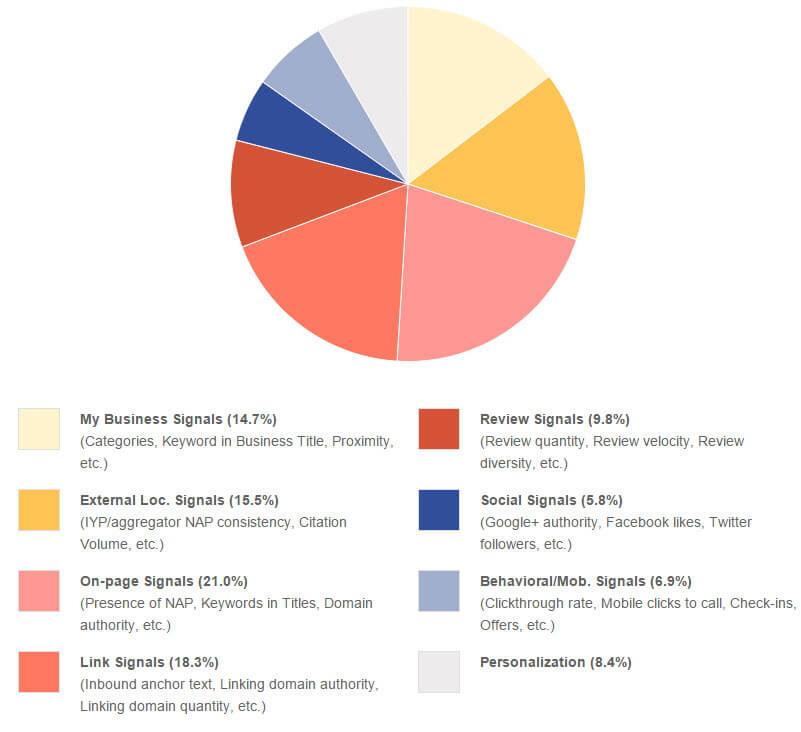The internet is on steroids.
What with the way things are changing at the speed of light and Google updates happening every time you breathe in.
Not really, but they are very frequent.
And as the internet progresses, so does technology, they do go hand in hand after all.
One great example of the technological developments taking place right before our eyes is the IoT. The Internet of Things is the consolidation of all electrical gadgets around you into one central hub.
And one of the major ways that hub is controlled is via the voice.
Hence the proliferation of voice-activated devices.
With the rise of these voice-activated devices comes a new way of interacting with the internet – voice search.
What Is Voice Search?
Voice search is a (cool) way of searching or browsing the internet by giving a voice command instead of the traditional way of typing in a query. Although this function can be used on both desktop and mobile devices, it is more popular on mobile devices.
In its initial stages, voice search received a lot of flack due to the fact that it got quite a number of voice commands wrong (word error rate was high), leading to user frustration. Today, the word error rate is so low voice recognition software is close to flawless. This means Siri, Bixby, Cortana, or whatever assistant you use now understand you perfectly (more often than not) and will give you the exact information you require.
Voice Search – Why Should You Even Care?
According to Google (and you should listen to Google) more than half of the searches made on the internet will be voice searches by 2020.
And as mobile devices become more popular and powerful tools voice search is quickly catching up to the traditional method of querying the net.
For everyone who has or cares to have a web presence, this data is super important.
Why?
For the reason that the future of SEO is in voice search.
People are adopting voice search more and more today due to it being a more convenient, faster, and “natural” way of searching the internet.
Hear this and hear it well - If voice search is not part of your SEO strategy, you will lose your voice and become a ghost as long as having impact and influence on the internet is concerned.
The question then begs to be asked, how can I make voice search a part of my SEO strategy?
5 Simple Ways to Implement Voice Search in Your SEO Strategy

Optimizing your site and content for voice search is not as difficult as it may sound. On the contrary, all you need is to know the right things to tweak and you are well on your way.
Here are 5 simple things you can implement so as to be voice search ready.
#1. Craft Conversational Content
When creating content for your website, you need to realize that people speak differently to the way they type.
This is important as it will help you create voice search optimized content.
When people type in a query, their search is more about keywords. On the other hand, voice search is more conversational in nature. This means you will have to adapt your content strategy to match “natural language”. Simply put, your content must become more conversational.
One of the masters at creating such content is Jacob McMillen, and this style of writing has made him a very successful marketing copywriter. Just look at the screenshot below of one of his articles.

The conversational tone makes it easy to read and understand what he’s talking about, making him a fan favorite on Google. And you too can also rise to Google’s top page by utilizing conversational content as he does.
This is to your advantage as it gives you a wealth of keywords, especially long tail keywords, that you can explore and rank for.
#2. Include A FAQ Page on Your Site
If you haven’t yet, include an FAQ page on your website – ASAP.
The reason for this is simple. All voice search queries are question-based. As a result, Google gives results that answer questions. This means the search engine’s spiders crawl the web in search of content that answers the query the user would have put in.
This is where your well-structured FAQ page comes in as it affords you the opportunity to increase keyword usage while solving user’s questions, concerns, and objections at the same time.
Now that’s something Google absolutely loves and rewards.
Your FAQ page is one of the most important pages on your website and you should treat it as such. It could be one of the pages that will increase your conversions too if you do it right. Before prospects make a final decision about your product or service, they usually visit your FAQ page to find out if you will truly manage to solve their problem.
When crafting your FAQ page, make sure to include words such as “How”, “Where”, “When”, “What”, “Who”, and any other word that shows that you are answering a question.
#3. Reviews Empower Your Voice
People absolutely love reviews.
So do search engines.

Online reviews, according to the above pie chart, contribute a whopping 10% to how search engines rank sites. The logic behind this, frankly speaking, is simple. Reviews influence buyer’s decisions, so much so that 90% of shoppers attest to the fact that reviews helped them make their final purchase decision.
Remember, one of the major ranking factors when it comes to content is relevance. And reviews are probably the most relevant content you can include on your website - content for the people by the people.
If you don’t have a system of collecting reviews and testimonials for your website, now is the best time to start. When it comes to SEO, 10% does make a very big difference.
#4. Publish More Long-Form Content
Long-form content has always been ranking better than short-form content for the simple reason that long-form content tends to provide more answers as it is in-depth.
When it comes to voice search, long-form content still rules. This is because long-form content provides more opportunities for matching the user’s query to keywords in your content.
#5. Optimize for Local SEO
Most voice searches are location specific. People are usually looking for something or someplace in their vicinity when they use voice search.
For example, “Where is the nearest restaurant?” As long as you have your location settings turned on, Google will give you results based on your position.
According to research, it has been proven that 82% of all mobile search is local. And that’s not all. The research further states that 50% of those who make local searches head over to that store within 24 hours of making the search.
This means that business optimized for local SEO will be found by searchers and thus make more sales. Is your business one of them?
Recommended: 15 Reasons Why Local SEO Is More Important than Ever
Ok Google, I’m Voice Search Ready…
Voice search is not the future of SEO, it is the present.
By implementing these 5 tactics to make your site voice ready, you will ride the current wave of success right into the future.
Voice search is here to stay and those who are able to woo Google in this department will succeed in driving tons of traffic to their sites.
I know you are one of them.
Related Posts
Kato Nkhoma is a unicorn content writer who specialises in creating highly engaging content that will keep readers coming back for more.
If you’re looking for something special to beef up your content marketing, this unicorn is it.








[…] Find out more on Visual Contenting. […]
[…] Voice Search – Why Everyone Is Talking about It (and Why You Should Join the Conversation) […]